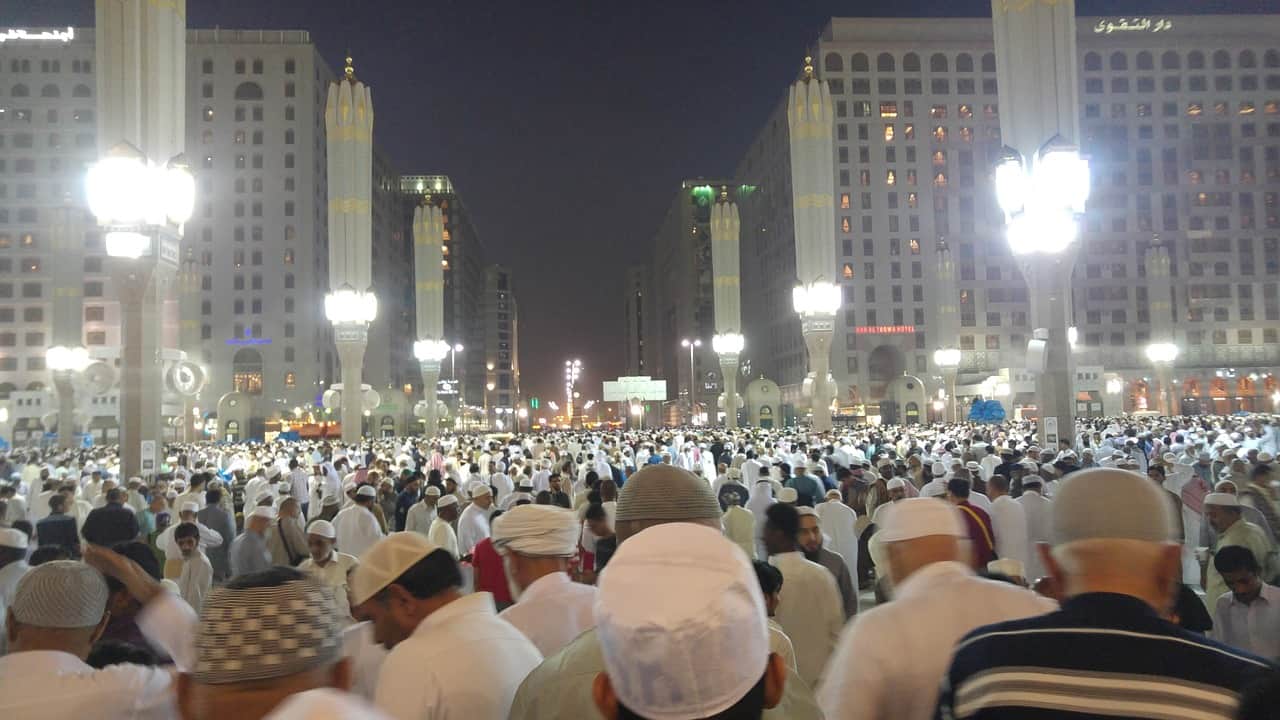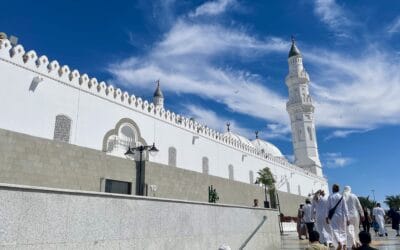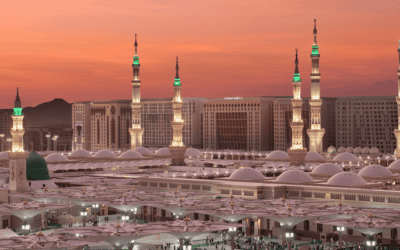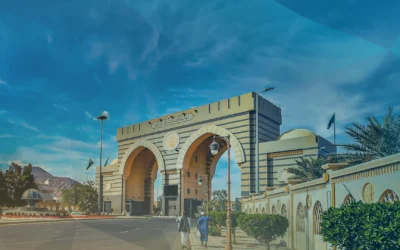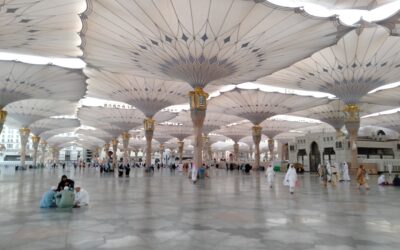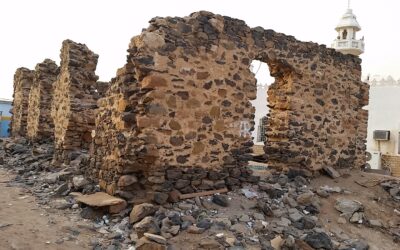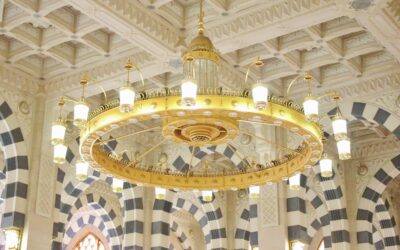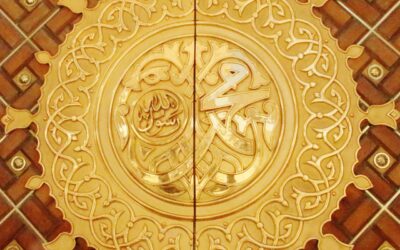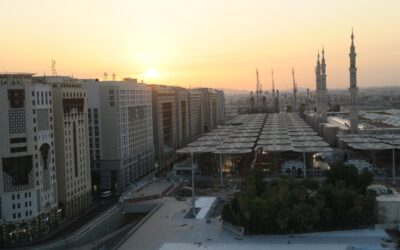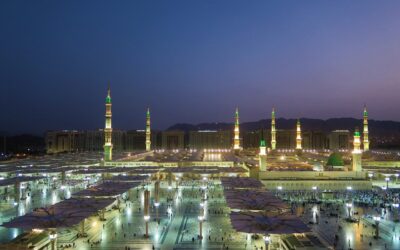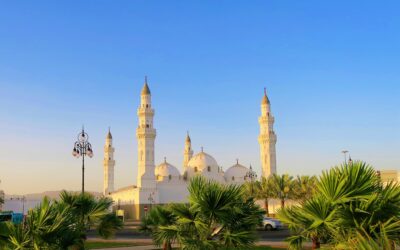Hajj remains a cornerstone of the Islamic faith and a demonstration of the global Muslim community’s unity.
The Journey of Faith
This is one of Islam’s Five Pillars – essential acts of worship and practice that define Muslim lives.
Every year millions of Muslims from various backgrounds and cultures from around the globe converge upon Mecca to fulfill this obligation and honor their spiritual duty by bowing before ALLAH’s will through devotional worship and ritual practice. Through pilgrimage, they find solace from material distractions while strengthening their bond with divinity.
Narrated by Abu Huraira (ra):
“The Prophet (ﷺ) said, “Whoever performs Hajj for Allah’s pleasure and does not have sexual relations with his wife, and does not do evil or sins then he will return (after Hajj free from all sins) as if he were born anew.”
(Shahih al-Bukhari, Vol. 2, Book 26, Hadith 596)
Historical Significance
Hajj’s origins date back to when ALLAH (swt) told Prophet Ibrahim (as) to construct Mecca’s Kaaba as a house of worship. Hajj commemorates Ibrahim (as), Hagar (as), and Isma’il (as)’s hard work and commitment to fulfilling ALLAH (swt)’s will by building this sacred house of worship.These events continue to inspire millions of Muslims as they undertake pilgrimages around the world today.
Narrated by Ibn Abbas (ra):
“Then they raised the foundations of the House (i.e. the Kaaba). Ishmael brought the stones and Abraham was building, and when the walls became high, Ishmael brought this stone and put it for Abraham who stood over it and carried on building, while Ishmael was handing him the stones, and both of them were saying, ‘O our Lord! Accept (this service) from us, Verily, You are the All-Hearing, the All-Knowing.’ The Prophet added, “Then both of them went on building and going round the Kaaba saying: ‘O our Lord! Accept (this service) from us, Verily, You are the All-Hearing, the All-Knowing.”
(Sahih al-Bukhari, Book 55, Hadith 583)
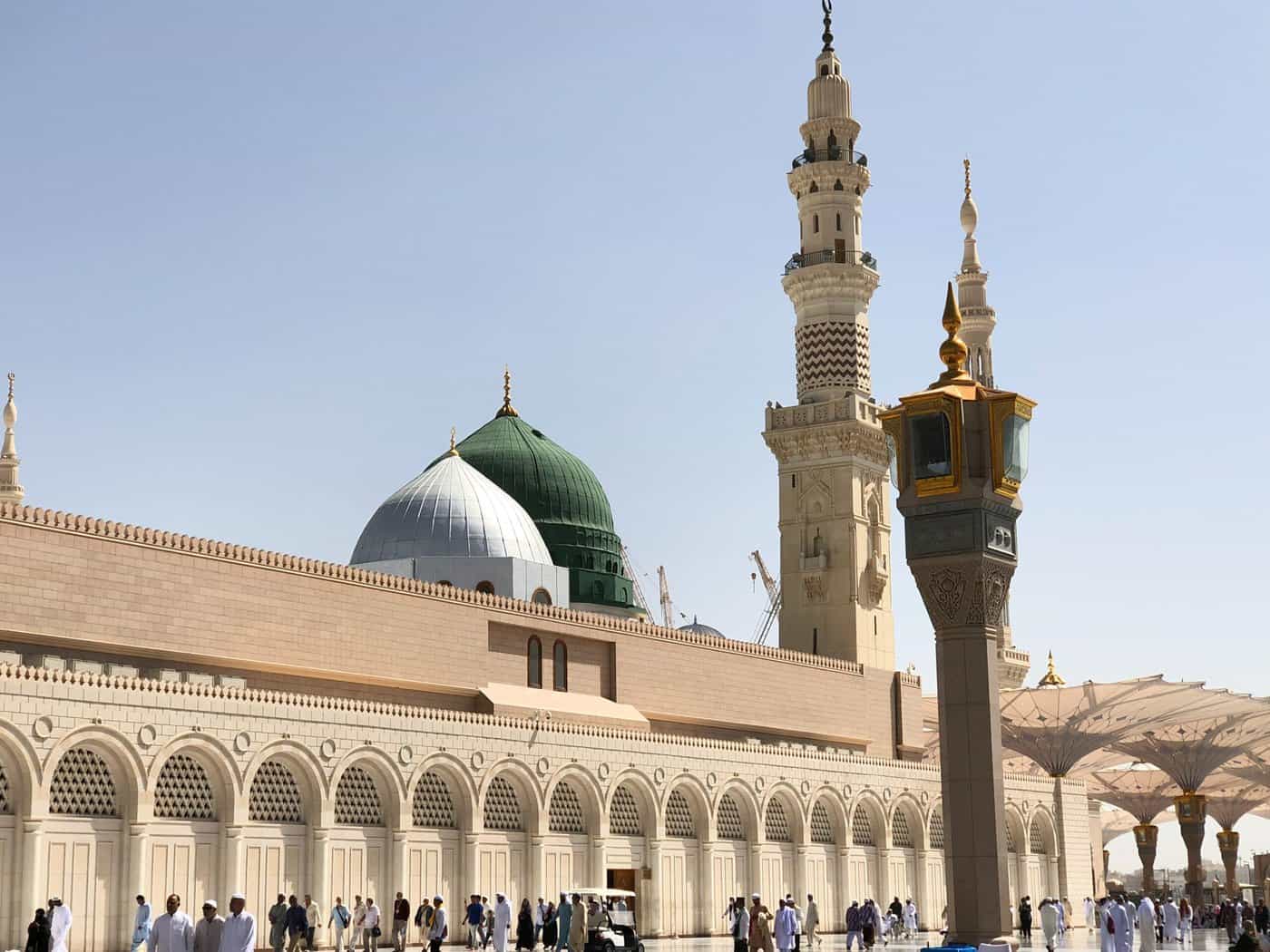
Rituals of Hajj
The rituals associated with Hajj are rich with symbolism and carry deep spiritual significance. Typically taking place over five or six days during Dhu al-Hijjah month in Islam.
Ibn Umar (ra) narrated that:
“The Messenger of Allah said: “Whoever assumes Ihram for Hajj and Umrah, then it is acceptable for him to perform one Tawaf and one Sa’I for them both until he exits Ihram for both of them together.”
(Jami` at-Tirmidhi, Vol. 2, Book 4, Hadith 948)
Ihram: Pilgrims enter a state of purity and humility by donning white garments to symbolize equality before Allah.
Tawaf: Pilgrims perform seven circuits around the Kaaba to demonstrate the concept of orbits and creation’s connection to its Creator.
Sa’i: To commemorate Hagar’s search for water for her son Isma’il, pilgrims walk seven times between Safa and Marwah hills on pilgrimage day.
Wuquf at Arafat: At the height of their Hajj pilgrimages, pilgrims congregate at Arafat to pray and make offerings in search of spiritual renewal and forgiveness.
Narrated ‘Abdur-Rahman bin Ya’mar:
“The Messenger of Allah (ﷺ) said: “The Hajj is ‘Arafat, the Hajj is ‘Arafat, the Hajj is ‘Arafat. The days of Mina are three: But whoever hastens to leave in two days, there is no sin on him, and whoever stays on, there is no sin on him (2:203). And whoever sees (attends) the ‘Arafah before the rising of Fajr, then he has performed the Hajj.”
(Jami` at-Tirmidhi, Vol. 5, Book 44, Hadith 2975)
Stoning of the Jamarat: Pilgrims take symbolic action by stoning pillars representing Satan’s temptations in order to show their determination against any potential harm that might come their way. This symbolic act signifies their determination against evil forces.
Jabir (ra) narrated:
“The Messenger of Allah stoned the Jamarat with pebbles like date sones or fingertips.”
(Sunan an-Nasa’i, Vol. 3, Book 24, Hadith 3077)
Eid al-Adha: Hajj culminates with the celebration of Eid al-Adha, commemorating Ibrahim (as)’s willingness to sacrifice his son and ALLAH’s mercifulness in providing a sacrificed son as sacrificed heir.
Aishah (ra) narrated that:
“The Messenger of Allah said: “Al-Adha is the day that the people sacrifice.”
(Jami` at-Tirmidhi, Vol. 2, Book 3, Hadith 802)
Unity and Diversity
Hajj is an extraordinary display of Muslim unity;
Pilgrims come from every corner of the globe regardless of ethnic, linguistic, or social background to experience unity in an atmosphere that encourages bonds that transcend barriers between individuals. It stands as proof of Islam’s inclusive nature, emphasizing how devotion to ALLAH (swt) truly matters. Pilgrims also usually visit The Rawda of the Prophet (ﷺ).
Hajj is not just a physical journey to a Kaaba. It’s an experience that resonates spiritually, serving as a powerful reminder of Islam’s essence: submission, devotion, and unity. Through its rituals and its immense faith-affirming nature, millions of Muslims demonstrate their deep-seated faith while honoring millions more through this annual pilgrimage reaffirming their commitments to both individual spirituality as well as collective unity – making Hajj an unparalleled experience for personal spirituality as well as collective unification.

